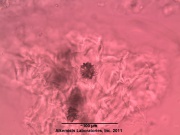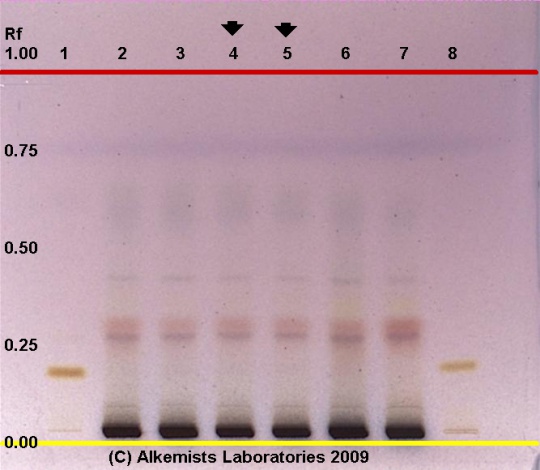Hibiscus sabdariffa (flower)
Contents |
Introduction
Macroscopic Entries
Microscopic Entries
|
HPTLC Entries
|
Hibiscus (flower) (Hibiscus sabdariffa) Lane Assignments Lanes, from left to right (Track, Volume, Sample):
Reference materials used here have been authenticated by macroscopic, microscopic &/or TLC studies according to the reference source cited below held at Alkemists Pharmaceuticals, Costa Mesa, CA. Stationary Phase Silica gel 60, F254, 10 x 10 cm HPTLC plates Mobile Phase tolulene: ethyl formate: formic acid [5/4/1] Sample Preparation Method 0.5 g + 5mL 70%gr EtOH sonicate/heat @ 50° C~1/2 hr, evap w N2, qs 1mL CH3OH Detection Method Thymol Sulfuric acid spray -> 115° C 10 min -> UV 365 nm Reference see Thin-Layer Chromatography Jork, Funk Wimmer P421-424
|
Other Points of Interest
Cite error: <ref> tags exist, but no <references/> tag was found


